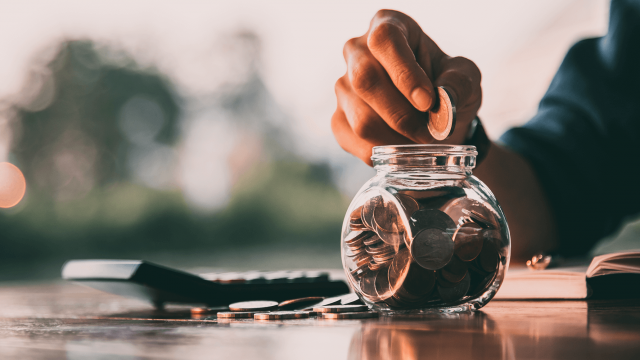5 tips to become a careful spender
Have a look at these money-saving tips that help you plan your expenses and avoid unpleasant surprises.

The following tips will help you plan your expenses and avoid unpleasant surprises.
- Be aware of the dangers of eating out.
We all love the convenience of eating out, but that’s precisely one of the most dangerous ways to break your budget. Luckily, it’s also one of the easiest habits to curb.
Time is the most common excuse for not cooking on a daily basis. However, a bit of planning can help you save time AND money. When preparing meals, always make extra portions that you can carry to work for lunch or even eat for dinner the following day. Freezing food is a great solution to having home-cooked meals ready when you need them!
- Buy in bulk, especially when you see great offers.
Prices are usually lower when you buy in large quantities. In many instances, you’ll find exceptional offers on products you usually need, such as buy two and get one free or buy one get, one half off.
However, be careful with unnecessary offers: just because something is on sale, doesn’t mean you should buy it! Ask yourself the question, “Is this essential?” If so, go ahead and save some money. Otherwise, you’re not saving… you’re simply spending on something you didn’t need, even if its price was reduced.
- Track your spending.
Tracking your expenses isn’t just about checking what you spend on a daily basis. It can also be a monthly analysis where you compare regular spending, such as groceries, utilities, transport, and particularly any expenses incurred when going out.
When you do a proper follow-up, you can easily notice what went wrong and how to course-correct in the future. Careful spending is not about avoiding anything fun, it’s also about allocating the proper budgets and sticking to it.
- Don’t impulse shop.
There’s a huge difference between having a spending impulse and acting on it. For small purchases, we tend to convince ourselves that the expense won’t make a big difference in our budget. Funny enough, if you track your spending (see previous tip) you’ll realize how those little purchases add up.
In regards to big purchases, even when you feel you really need something, the proper approach is to sleep on it. And then sleep on it some more. This won’t only help you make up your mind about it, but it’ll also provide you some extra time for research and maybe even finding a better deal.
- Think long-term: set up financial goals.
When it comes to financial planning, instant gratification is the enemy of progress. As human beings, we always desire pleasant things, whether it’s a nice meal at our favourite restaurant, a designer purse or even a new watch. Buying makes us feel good, even when hours or days later, we regret overspending.
When you plan key financial goals, it helps keep your mind on track. Whether it’s buying a house, a much-needed car, or an overdue trip, having those goals as daily reminders will help you focus and avoid unnecessary expenses.
In essence, think twice before spending and make sure you only buy what you need, when you need it. Of course, it’s easier said than done, but hopefully, these five tips will allow you to save that extra money at the end of the month.
